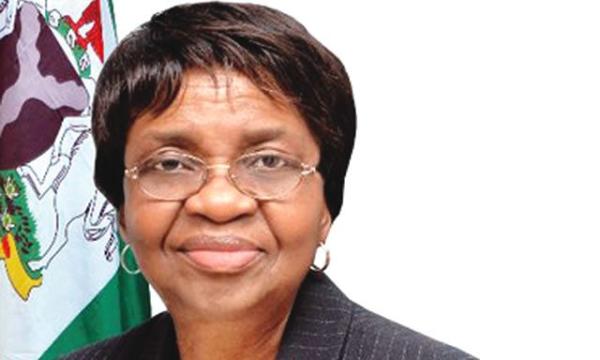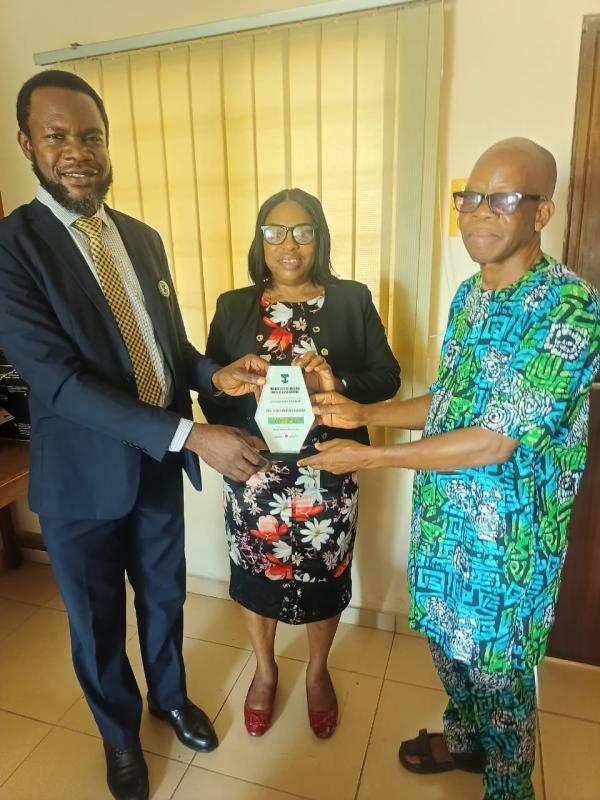
Director General of the National Agency for Food and Drug Administration and Control (NAFDAC), Prof. Mojisola Christianah Adeyeye, has called for deeper collaboration and stronger regulatory systems to safeguard Nigeria’s medicine supply chain.
She made the appeal during a presentation delivered via Zoom at the 98th Annual National Conference of the Pharmaceutical Society of Nigeria (PSN) tagged 'DAB0 2025' on Wednesday, November 5, 2025.
Speaking on “Medicine Security: The Success Factors and the Roles of Pharmacists,” Adeyeye traced Nigeria’s long-standing struggle with medicine insecurity to several decades back.
According to her, the challenge “dates back to the 1960s, escalating to a critical level in the 1980s and 1990s due to weak regulatory oversight, unregulated importation practices, chaotic drug supply chains, and compromised product quality.”
These failures, she noted, led to increased treatment failures, antimicrobial resistance, and avoidable deaths — ultimately prompting the creation of NAFDAC “to mitigate these risks.”
Defining medicine security, Adeyeye stated that it involves “ensuring quality, safe, and efficacious medicines; guaranteeing that manufacturing facilities meet Good Manufacturing Practices; and maintaining an uncompromised supply chain from the manufacturers down to the consumers.”
She added that the goal is for “every clinic, health facility, health worker and patient to have reliable, equitable access to the medical products they need to achieve good health status… a goal worth striving for.”
Highlighting NAFDAC’s growth, Adeyeye said the agency has become an ML3 regulatory authority, describing it as “stable, with an integrated regulatory system” and the first in Africa to sustain the status after WHO re-benchmarking.
She attributed these achievements to “institutionalized quality management systems, investments in human capacity, ISO-certified laboratories, and a WHO-prequalified drug laboratory.”
Adeyeye also emphasized the factors necessary for a strong national regulatory agency, listing political support, sustainable financing, structured governance, data-driven decisions, and competent personnel.
“A strong NRA is vital,” she said, because “it protects public health, prevents the trade of substandard medicines, and ensures timely access to essential medical products.”
On local manufacturing, she highlighted the impact of NAFDAC’s 5+5 Policy and the Ceiling List, explaining that they were introduced to gradually phase out importation of medicines that Nigeria already has the capacity to produce.
“The selected products,” she said, “are prohibited from importation and can only be manufactured locally,” encouraging investors to build facilities or adopt contract manufacturing.
The DG also referenced the Presidential Executive Order on local production of pharmaceuticals, noting that it is designed to “lower production costs, attract investment, and improve competitiveness of local manufacturers,” while complementing NAFDAC’s existing policies.
Addressing the National Action Plan (NAP 2.0), Adeyeye explained that its strategy focuses on “prevention, detection, and response to substandard and falsified medical products.”
She outlined measures such as public awareness, enhanced inspections, traceability systems, intelligence sharing, and swift enforcement actions.
On traceability, she stressed its importance in safeguarding the supply chain, noting that assigning unique digital identities to each pack of medicine “enables end-to-end visibility and provides a digital trail of authenticity.”
Adeyeye also warned about the consequences of weak enforcement, which she described as “the proliferation of fake, adulterated, or expired medicines, increased morbidity and mortality, and economic sabotage.”
She charged pharmacists to remain central in safeguarding medicine security through compliance, vigilance, responsible procurement, and patient education.
In her closing remarks, the NAFDAC DG reaffirmed the agency’s commitment to strengthening local manufacturing and regulatory systems.
“The increase in local manufacturing and decrease in imported drugs guarantee medicine security,” she said. “We must embrace it,” she concluded.





















